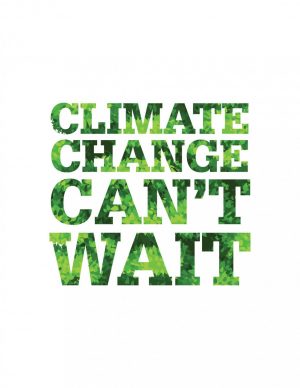Shadley: A Carbon Embargo Misplaces Responsibility and Fails to Facilitate Decarbonization
December 21, 2021
The burning of fossil fuels, like coal, oil and natural gas, is the primary reason for anthropogenic climate change. It’s also been the best way to rapidly grow an economy. It’s no surprise that wealthy nations are responsible for half of all the greenhouse gas emissions since the industrial revolution. Rich countries, including the United States, Canada, Japan and most of Europe, make up only 12% of the world population. The U.S. has the most disproportionate historical emissions, with roughly 25% of all greenhouse gas emissions. The next highest historical emitter, China, is responsible for only 14% of historical emissions, despite their population quadrupling ours. As we look to mitigate and adapt to global climate change, how can the U.S. take accountability for our actions and facilitate global decarbonization?
Burning Fossil Fuels Leads to Less Poverty
Large developing countries, like India, that have historically not been significant contributors to the climate crisis are looking to increase the quality of life for their citizens. The World Bank defines international poverty as less than $1.90 per day. In the U.S., the poverty level for a single person is roughly $35.29 per day. Yet, the most feasible, available method for lifting people out of poverty for developing countries is to increase their reliance on fossil fuels. That leaves them with two options: continue having most of their population live in abject poverty or exponentially increase their greenhouse gas emissions.
In 1990, more than 750 million people in China were living below the international poverty line. And in 2012, that number had shrunk to only 90 million people. However, China’s greenhouse gas emissions have roughly tripled over that time, and they now emit more carbon than any other country in the world. Doing so has lifted many people out of life-threatening poverty, and that’s something we should celebrate. The more people who get to live a dignified, fulfilling life, the better.
Two difficult problems arise as we look to lift more people out of poverty across the world. First, China’s greenhouse gas emissions are the highest in the world, but their per-capita emissions are still dwarfed by most western nations. If China looks to lift more people above our poverty level, they’re going to have to burn a lot more fossil fuels to do so. Suggesting that China be held accountable to standards that no western country could meet is deeply problematic. Second, there are several other large developing countries, like India, Pakistan, Indonesia and Brazil, who will hopefully lift as many of their citizens out of poverty as China has. However, they don’t have the financial resources to do so with renewable energy sources, they must rely on fossil fuels for that transformation.
Why a Carbon Embargo Won’t Work
One proposition, the Baker-Schultz Plan, suggests that we should place a carbon embargo on our trade partners. Doing so would impose a tax on all imports that come from other countries that did not price carbon. A carbon embargo would ask developing nations to foot the bill to either decarbonize their economy or pay the U.S. for the privilege to emit carbon. Either way, their economies would be damaged, and more people would continue to live in undignified poverty for longer. And if they simply pay the tax, functionally no decrease in carbon emissions will occur, only a transfer of wealth from developing countries to the U.S.
A carbon embargo grossly misrepresents who bears responsibility for the climate crisis. Imposing a tax on countries that already do not have the funds to decarbonize or adapt to climate change will strip them of any chance they had at doing so. On top of that, the Baker-Schultz Plan includes reimbursements for American companies on carbon taxes, allowing them to continue relying on fossil fuels. It’s not a real plan to deal with the climate crisis, it’s the same attempt to steal wealth from developing countries that wealthy nations have always engaged in.
But, developing countries desperately want to decarbonize. India has asked the rich world to support them in producing a more renewable energy grid, but so far, no one has stepped up. India, and many other countries that make up the global South, recognize that they will be disproportionately affected by a crisis that they barely contributed to. Wealthy nations that have massively contributed to the climate crisis must fund climate adaptation and climate mitigation in other countries. Isolating ourselves from the world and trying to strong-arm them will only result in our mutually assured destruction.
Response to Ian Linnabary
There are absolutely disgusting human rights violations occurring in China, as there are in America, and most industrialized nations. Any country with an economic system that values profit and wealth accumulation over its people will inevitably lead to the exploitation of workers. And that same economic system allows for the exploitation of our planet as well. Perhaps the problem is not carbon emissions, but the economic system that allows for the exploitation of labor and resources. Just a thought.
Regardless, all a carbon embargo on China does is allow U.S. companies to continue emitting carbon during their manufacturing processes, so long as they do so in a country other than China. And if they manufacture those products in the U.S., China will pay for their privilege to emit. If we really cared about reducing emissions, we would require U.S. companies to minimize their carbon emissions during manufacturing. If they want to continue manufacturing overseas, they should be responsible for ensuring that the manufacturer they work with has the resources to transition to green energy.
While the U.S. and other developed countries have contributed some money to developing nations looking to shift to clean energy, they’ve come up laughably short. If we don’t take accountability for our actions, more and more countries will use fossil fuels to develop as China has. A carbon embargo doesn’t just absolve the U.S. from responsibility, it blames developing countries — something we shouldn’t accept.








